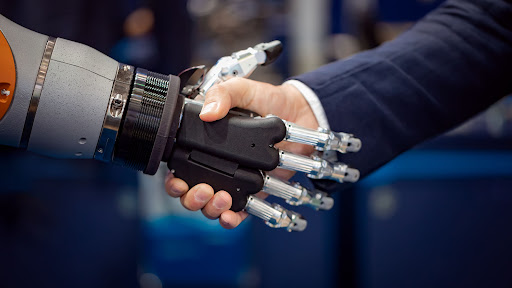Many have become acquainted with business process automation as it’s integrated into workplaces. Yet, what exactly does its processing cousin, robotic process automation, do?
Robotic process automation (RPA) is the application of technology that allows employees in a company to configure computer software or a “robot” to capture and interpret existing applications for processing a transaction, manipulating data, triggering responses, and communicating with other digital systems.
How does RPA work?
RPA software “bots” or “robots” can be programmed to interpret and follow existing processes like humans. They automate repetitive tasks by learning how to manipulate data, trigger responses, communicate with other systems, and even make decisions without human intervention. The bots then interact with digital systems the same way a human would, but at a much faster rate and with greater accuracy.
Types of RPA
There are two main types of RPA:
Attended Bots
These bots are used where human intervention is required, such as when a customer service representative must access multiple systems to resolve a customer issue. The bot is “attended” by the human and works alongside them to complete the task.
Unattended Bots
These bots are used for tasks that do not require human intervention, such as data entry or processing transactions. Unattended bots can work around the clock and are typically used for large-scale, repetitive tasks.
Benefits of RPA
With Business Process Automation (BPA), many organizations have already seen the benefits of automating repetitive, manual tasks. RPA takes this a step further by automating the task and interaction with digital systems. It allows organizations to see even greater efficiency gains and cost savings.
Some of the benefits of RPA include:
Faster Task Completion
Bots can work 24/7 and complete tasks in a fraction of the time it would take a human. Compared to BPA, RPA can provide even greater efficiency gains. The potential for increased speed and efficiency is one of the main reasons organizations invest in RPA. It is particularly beneficial for time-sensitive tasks, such as financial transactions.
Greater Accuracy
Bots can be programmed to follow the rules and complete tasks with high accuracy. It contrasts with human employees, who may make mistakes when completing repetitive tasks. With RPA, organizations can be confident that tasks are completed accurately and efficiently.
Increased Compliance
RPA can help organizations comply with regulations and internal policies. It is because bots can be programmed to follow the rules and complete tasks in a predetermined way. That is beneficial for organizations that adhere to strict regulations, such as those in the financial sector.
Improved Customer Service
The increased accuracy and efficiency of RPA can lead to improved customer service. It is because bots handle typically time-consuming tasks, such as resolving customer queries. By using RPA, organizations can free up employees’ time so that they can provide a better level of service to customers.
Reduced Costs
With RPA, organizations can achieve cost savings by automating tasks that human employees typically complete. Unlike humans, bots can work around the clock and do not require breaks or lunch breaks. In addition, RPA can help to reduce errors and rework, which can further lead to cost savings.
Applications of RPA
RPA can be used in a variety of industries and for a range of tasks. Some of the most common applications of RPA include:
Data Entry
The most common application of RPA is data entry. The bot can be programmed to quickly and accurately enter data into digital systems.
Transaction Processing
Another common application of RPA is transaction processing. It involves using bots to process transactions, such as invoices and payments, automatically.
Customer Service
RPA can also be used for tasks related to customer service, such as resolving customer queries or providing support.
Fraud Detection
RPA can be used to detect fraud by analyzing data for patterns that may indicate fraudulent activity.
Compliance
RPA can also help organizations comply with regulations and internal policies. The bots can be programmed to follow the rules and complete tasks in a predetermined way.
The future of RPA is exciting. With the continued advancement of technology, RPA will likely become even more prevalent in the business world. In addition, as RPA technology becomes more sophisticated, it will eventually lead to even more innovative applications of RPA. With the benefits of RPA becoming increasingly clear, we will certainly see a continued increase in investment in this exciting technology.
Follow Techdee for more!





